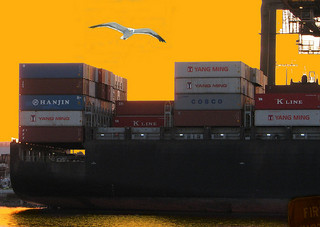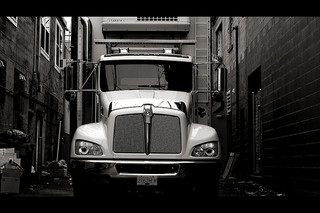The Long Term Effects of the West Coast Labor Talks

West coast ports faced a nine-month long work slowdown because of labor disputes between the Pacific Maritime Association and the International Longshore and Warehouse Union. There was even a short period of time where the ports closed. Thousands of companies had to make adjustments to their supply chains to keep business moving around the country. On February 20, the Pacific Maritime Association finally came up with a tentative contract with the International Longshore and Warehouse Union to end labor disputes. However, west coast ports still have a big backlog to cover from months of delays.
This article is for Premium Members only. Please login below to read the rest of this article.
Not a Premium Member yet? Become one today.
[login_form redirect=’https://www.procurementbulletin.com/the-long-term-effects-of-the-west-coast-labor-talks’]
[show_to accesslevel=’Premium Members’]
Backlog of Containers Will Continue to Cause Delays
It will take three months or more for the backlog of shipments to get back to normal. So, companies that use the west coast ports, specifically the ones in Long Beach and Los Angeles, will still have logistics and supply chain issues to deal with. This will cost companies billions of dollars and have long term effects on their business profits. Customers don’t like when they go into a store and can’t find what they want or have to wait months before an item can be shipped to their homes. These customers end up taking their business elsewhere.
The reason why it will take so long to clear the backlog of containers from the ports is because workers must move each container individually, clean it, unload and load product, and do anything else mandated by the companies using the container. This backlog must be cleared so that new ships coming into the ports have a place to dock and unload their containers.
West Coast Ports Lose Business
Some businesses are choosing to no longer use the west coast ports. For instance, Hanjin Shipping announced that they will no longer ship cargo out of Portland because it takes too long. This one company alone made up 78 percent of the Port of Portland’s workload. The Port of Portland is working hard to try and get the contract back.
The bad news for the west coast ports is that many businesses that have found alternative shipping routes may never come back. The east coast ports have picked up a lot of the diverted cargo. They saw an increase in growth of 10 percent. Canada and Mexico are also seeing more cargo traffic that may never go back to the west coast ports.
U.S. Agriculture Exports Suffer Badly
Agriculture companies faced the biggest impacts from the west coast port delays because their goods were perishable. It’s estimated that the industry lost $2 billion in goods for three months when the port delays were at the worst. Many exporters are actually facing bankruptcy because of the losses. If things don’t start speeding up soon, the agriculture business might have a very hard time recovering, even years.
The west coast ports are picking up speed, but the long term effects of the labor union disputes are not good. The Pacific Maritime Association and the International Longshore and Warehouse Union need to find a way to get along or the west coast ports will continue to suffer as they have for years. [/show_to]






